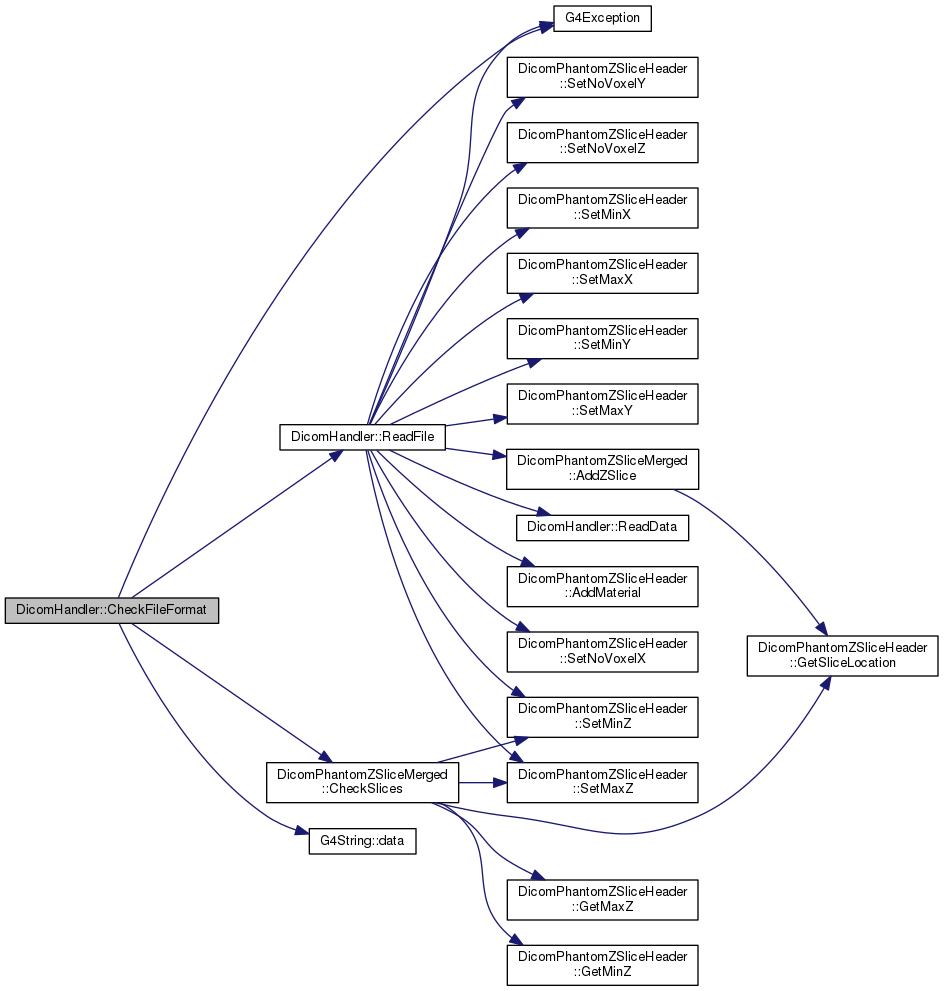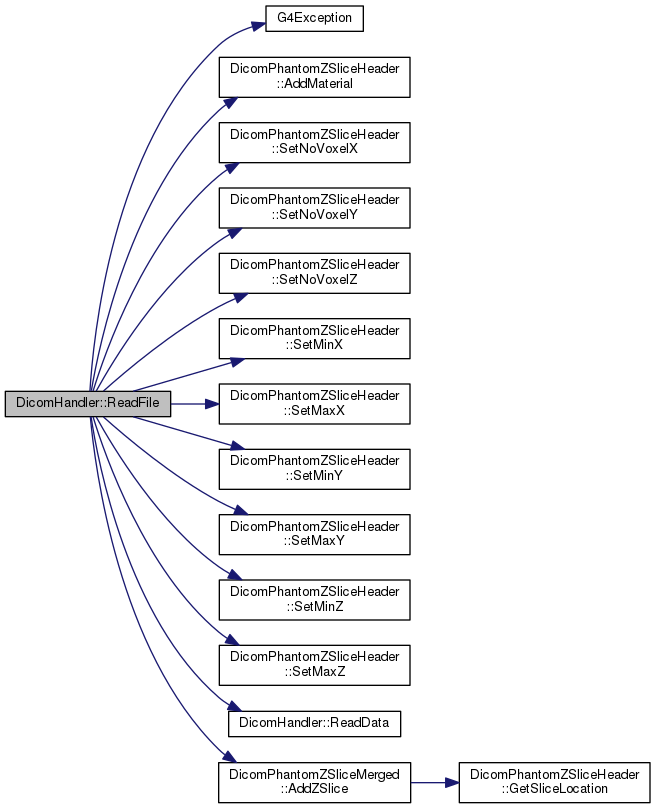615 G4int returnvalue = 0;
size_t rflag = 0;
620 fTab =
new G4int*[fRows];
621 for (
G4int i = 0; i < fRows; i ++ ) {
622 fTab[i] =
new G4int[fColumns];
625 if(fBitAllocated == 8) {
627 std::printf(
"@@@ Error! Picture != 16 bits...\n");
628 std::printf(
"@@@ Error! Picture != 16 bits...\n");
629 std::printf(
"@@@ Error! Picture != 16 bits...\n");
631 unsigned char ch = 0;
633 for(
G4int j = 0; j < fRows; j++) {
634 for(
G4int i = 0; i < fColumns; i++) {
636 rflag = std::fread( &ch, 1, 1, dicom);
637 fTab[j][i] = ch*fRescaleSlope + fRescaleIntercept;
645 for(
G4int j = 0; j < fRows; j++) {
646 for(
G4int i = 0; i < fColumns; i++) {
648 rflag = std::fread(sbuff, 2, 1, dicom);
649 GetValue(sbuff, pixel);
650 fTab[j][i] = pixel*fRescaleSlope + fRescaleIntercept;
656 char * nameProcessed =
new char[FILENAMESIZE];
659 std::sprintf(nameProcessed,
"%s.g4dcmb",filename2);
660 fileOut = std::fopen(nameProcessed,
"w+b");
661 std::printf(
"### Writing of %s ###\n",nameProcessed);
663 unsigned int nMate = fMaterialIndices.size();
664 rflag = std::fwrite(&nMate,
sizeof(
unsigned int), 1, fileOut);
666 std::map<G4float,G4String>::const_iterator ite;
667 for( ite = fMaterialIndices.begin(); ite != fMaterialIndices.end(); ite++ ){
669 for(
G4int ii = (*ite).second.length(); ii < 40; ii++ ) {
673 const char* mateNameC = mateName.c_str();
674 rflag = std::fwrite(mateNameC,
sizeof(
char),40, fileOut);
677 unsigned int fRowsC = fRows/fCompression;
678 unsigned int fColumnsC = fColumns/fCompression;
679 unsigned int planesC = 1;
680 G4float pixelLocationXM = -fPixelSpacingX*fColumns/2.;
681 G4float pixelLocationXP = fPixelSpacingX*fColumns/2.;
682 G4float pixelLocationYM = -fPixelSpacingY*fRows/2.;
683 G4float pixelLocationYP = fPixelSpacingY*fRows/2.;
684 G4float fSliceLocationZM = fSliceLocation-fSliceThickness/2.;
685 G4float fSliceLocationZP = fSliceLocation+fSliceThickness/2.;
687 rflag = std::fwrite(&fRowsC,
sizeof(
unsigned int), 1, fileOut);
688 rflag = std::fwrite(&fColumnsC,
sizeof(
unsigned int), 1, fileOut);
689 rflag = std::fwrite(&planesC,
sizeof(
unsigned int), 1, fileOut);
691 rflag = std::fwrite(&pixelLocationXM,
sizeof(
G4float), 1, fileOut);
692 rflag = std::fwrite(&pixelLocationXP,
sizeof(
G4float), 1, fileOut);
693 rflag = std::fwrite(&pixelLocationYM,
sizeof(
G4float), 1, fileOut);
694 rflag = std::fwrite(&pixelLocationYP,
sizeof(
G4float), 1, fileOut);
695 rflag = std::fwrite(&fSliceLocationZM,
sizeof(
G4float), 1, fileOut);
696 rflag = std::fwrite(&fSliceLocationZP,
sizeof(
G4float), 1, fileOut);
699 std::printf(
"%8i %8i\n",fRows,fColumns);
700 std::printf(
"%8f %8f\n",fPixelSpacingX,fPixelSpacingY);
701 std::printf(
"%8f\n", fSliceThickness);
702 std::printf(
"%8f\n", fSliceLocation);
703 std::printf(
"%8i\n", fCompression);
705 G4int compSize = fCompression;
712 for(
G4int ww = 0; ww < fRows; ww++) {
713 for(
G4int xx = 0; xx < fColumns; xx++) {
715 density = Pixel2density(mean);
716 unsigned int mateID = GetMaterialIndex( density );
717 rflag = std::fwrite(&mateID,
sizeof(
unsigned int), 1, fileOut);
724 for(
G4int ww = 0; ww < fRows ;ww += compSize ) {
725 for(
G4int xx = 0; xx < fColumns ;xx +=compSize ) {
728 for(
int sumx = 0; sumx < compSize; sumx++) {
729 for(
int sumy = 0; sumy < compSize; sumy++) {
730 if(ww+sumy >= fRows || xx+sumx >= fColumns) overflow =
true;
731 mean += fTab[ww+sumy][xx+sumx];
735 mean /= compSize*compSize;
738 density = Pixel2density(mean);
739 unsigned int mateID = GetMaterialIndex( density );
740 rflag = std::fwrite(&mateID,
sizeof(
unsigned int), 1, fileOut);
749 for(
G4int ww = 0; ww < fRows; ww++) {
750 for(
G4int xx = 0; xx < fColumns; xx++) {
752 density = Pixel2density(mean);
753 rflag = std::fwrite(&density,
sizeof(
G4float), 1, fileOut);
760 for(
G4int ww = 0; ww < fRows ;ww += compSize ) {
761 for(
G4int xx = 0; xx < fColumns ;xx +=compSize ) {
764 for(
int sumx = 0; sumx < compSize; sumx++) {
765 for(
int sumy = 0; sumy < compSize; sumy++) {
766 if(ww+sumy >= fRows || xx+sumx >= fColumns) overflow =
true;
767 mean += fTab[ww+sumy][xx+sumx];
771 mean /= compSize*compSize;
774 density = Pixel2density(mean);
775 rflag = std::fwrite(&density,
sizeof(
G4float), 1, fileOut);
782 rflag = std::fclose(fileOut);
784 delete [] nameProcessed;
792 if (rflag)
return returnvalue;




